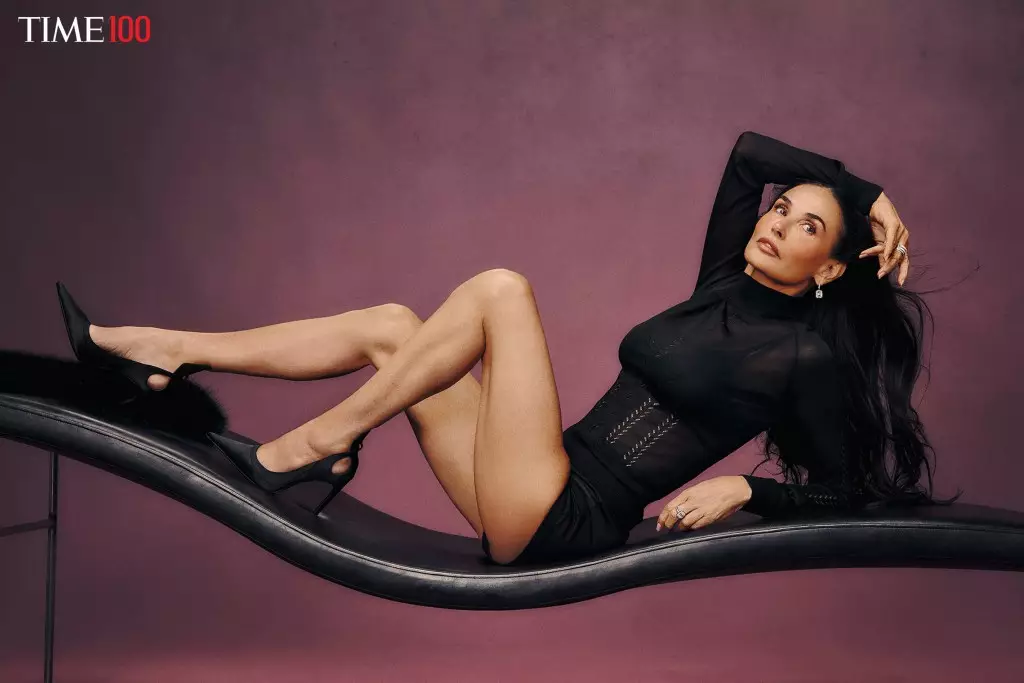Every year, Time magazine’s list of the 100 most influential people emerges as a dazzling yet perplexing tapestry woven from various threads of society. It facilitates conversations surrounding who we consider impactful and, perhaps more critically, who we exclude. In 2023, the entertainment industry threw its hat in the ring, showcasing giants like Demi Moore, Snoop Dogg, and Scarlett Johansson, yet the very act of selecting these candidates raises eyebrows.
Are we simply glorifying celebrity culture while neglecting important figures in politics and social justice who merit equal or greater recognition? In a world riddled with crises that demand real-world implications, it feels absurd to see a handful of social media influencers right alongside historical figures and groundbreaking activists. This raises essential questions regarding the merit of such a compendium—whose voices resonate, and why?
The Power of Collaboration
Time magazine has long mastered the art of juxtaposition by pairing influential figures with their admirers for write-ups that range from heartfelt to plain platitudinous. This year’s featured entries include Shonda Rhimes opining on Ted Sarandos and Will Ferrell giving nods to Lorne Michaels, weaving a narrative that not only emphasizes these individuals’ contributions but also layers their influence with a kind of reverence. Yet, isn’t it troubling that the most meaningful discussions regarding social issues are often submerged in a sea of flattery?
Rather than being a forum for genuine discourse about the world’s challenges, the Time100 sometimes risks becoming a feel-good spectacle. While the anecdotes from these esteemed guest contributors could spark dialogues, the presentation of these figures often feels more like a publicity exercise than an urgent societal examination. The irony is palpable—our most celebrated influencers are often those who perpetuate entertainment over enlightenment.
A Missed Opportunity for Recognition
Prominent social figures such as athletes or entertainers deserve recognition for their unique contributions, but their inclusion often invites debate over the selection criteria employed by Time. The absence of powerful activists or leaders who are tirelessly paving pathways for social change stands out starkly. Imagine a list that included grassroots innovators or unsung heroes who are actively redefining societal norms rather than those merely thriving under the spotlight.
While figures like Simone Biles and Serena Williams shine brightly within the realm of sports, does showcasing their prowess overshadow a wealth of issues they could be advocating for? The imbalance manifests itself as entertainment and celebrity overshadow the vital work of numerous unsung heroes who are confronting the challenges of our time.
Cultivating an Aware Narrative
The Time100 list does ignite interest, but it begs the question: how do we redefine our understanding of ‘influence’? If the intention of such a list is to inspire action and introspection, let’s elevate the conversation. Wouldn’t it be invigorating to see a diverse roster that includes leaders advancing the conversations on climate activism, social justice, and equality?
By expanding its horizons and refocusing on multidimensional influence, such lists can transition from annual celebrations of stardom into gateways for deeper societal engagement, reflecting a world where influence arises not merely from fame but from a commitment to effecting meaningful change. In doing so, we honor the transformative power of individuals dedicated not only to their craft but also to the greater good.

